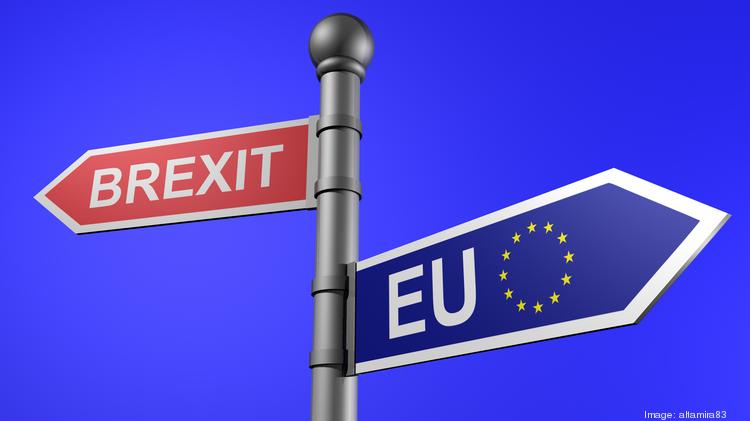Article originally published in the Philadelphia Business Journal on June 27, 2016
During the days prior to the historic United Kingdom (England, Wales, Scotland and Northern Ireland) Brexit referendum on whether to leave the 28-country European Union, pollsters were predicting that U.K. voters would choose to remain in the EU. I awoke the morning of June 24 and glanced at my iPad and saw the headline, “David Cameron announces his resignation as U.K. prime minister as a result of the vote to leave the European Union,” a news story I did not expect to see that morning. Fifty-two percent of U.K. voters expressed their desire to leave the EU.
Cameron is leaving his post so a new U.K. prime minister can fulfill the mandate expressed by a majority of its voters to leave the EU. Quoting Cameron, “British people have made a very clear decision to take a different path and as such I think the country requires fresh leadership to take it in this [new] direction.”
Since the Brexit vote on June 24, the media and pundits have reported on the adverse impact on world stock markets, international trade, immigration and the implications for the future of the EU. Almost immediately, supporters of exiting the EU in France and the Netherlands claimed that their countries were next. Within the U.K., Scotland and Northern Ireland voted to remain in the EU, which raises the specter of these two countries leaving the U.K. so they can remain in the European Union.
There are two major reasons for the vote by U.K. citizens to exit the EU, as well as the possible future exit by its other member countries. One reason is loss of national sovereignty in many areas by “being governed” and over-regulated by faceless, unelected EU bureaucrats in Brussels. The other reason is concern over lack of control of immigration, resulting in the slow erosion of their national culture caused by some immigrants who do not assimilate nor adopt the values and cultural norms of their new country.
Other countries negotiate trade agreements with the EU, and all member EU countries are bound by these trade agreements. One can imagine the added complexity and adverse impact on trade, employment and economic growth if separate trade agreements needed to be negotiated with each non-member of the EU.
Jobs and employment drive politics, and I can’t help but think these are also factors causing dissatisfaction within with the EU. The one economic benefit that has not come to all EU countries is reflected by high relative unemployment rates compared with the United States.
From 2003 through 2014, total unemployment in the EU has averaged 9.2 percent, 37 percent higher than the average unemployment rate of 6.7 percent in the United States during this 12-year period. The unemployment rate for workers under the age of 25 in 2014 was 22.2 percent for all EU members; in France, 24.1 percent; and in the United Kingdom, 16.9 percent. This compares with 13.4 percent for unemployed workers under the age of 25 in the U.S.
The economies of EU countries are not expanding at a sufficiently rapid pace to provide work for their young people. Exiting the EU will make this problem much worse. Those individuals in the U.S. who want our country to be more like Europe need to take note. The economic system of the U.S. is better at providing jobs for its youth and the population as a whole. Job growth in Europe is stifled by government philosophies that are slanted to favor social polices other than employment.
The initial response by the EU to the U.K. referendum was to state that separation of the U.K. from the EU should take place much more rapidly than the two-year period that Cameron initially suggested. I believe that the EU leaders should not play hardball with the U.K. and show some sensitivity to the results of the vote, and if possible change those rules which are an anathema to citizens of the member countries of the EU.
Rules of every organization that don’t make sense or are unimportant to achieving goals should always be questioned and changed. It would be in the best interests of the EU and the leaders of Europe to listen to their constituents and make adjustments to their policies to avoid further defections.
The EU needs to face the brutal facts of reality and become less bureaucratic and more accountable and responsive to the citizens of Europe. If the EU continues to be viewed as independent of the citizens of its member countries, nationalistic fervor will grow and more defections will occur, to the detriment of all.
A petition is circulating within the U.K. to hold a second referendum, claiming that many voters did not realize the consequences of the U.K. leaving the EU. So far, over 3 million signatures have been collected. This second referendum should be permitted.
I would hope that the U.K. vote to exit the EU serves as a wake-up call, resulting in real change to how the EU operates. The political leaders of Europe will need to ensure that this occurs because the bureaucrats of the EU will not. Disintegration of the EU is in no one’s best interest.
Stan Silverman is the founder and CEO of Silverman Leadership. He is a writer, speaker and advisor to C-suite executives on business issues and on cultivating a leadership culture within their organizations. Stan is Vice Chairman of the Board of Drexel University and a director of Friends Select School and Faith in the Future. He is the former President and CEO of PQ Corporation. Follow: @StanSilverman. Connect: Stan@SilvermanLeadership.com. Website: www.SilvermanLeadership.com

